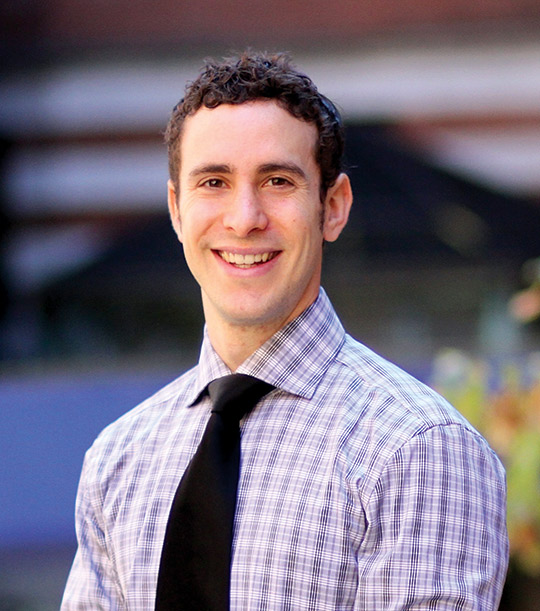TC's Goldenberg: Talking Inclusion? Include our Students
By Barry Goldenberg
It seems that everyone, from pundits to politicians to researchers of all academic disciplines, has something to say about inclusive education, an approach that seeks to serve students of all abilities and backgrounds in the same classroom. Yet one important demographic has been left out of the discussion: students themselves.
As education advocates, we must remember that everything we are trying to do is for students’ benefit. In conversations about equity, no one is more qualified than they to discuss ways to create powerful learning, improve student engagement and critique school policy — and no one has more at stake.
As a TC doctoral student and Research Fellow at the Institute for Urban and Minority Education (IUME), I direct a program called Youth Historians in Harlem (YHH), through which an eclectic group of local high school students with a wide range of abilities learn to “do” history by researching the history of their own Harlem community. Now in its third year, the program has been a great success, with students presenting their research at TC in front of graduate students, faculty, teachers and family members.
I believe the primary reason that my students have been so receptive to YHH is the role they have in driving it. I am constantly in honest dialogue with them about what motivates them to read and write, and I shape both the curriculum and the way I teach it around their suggestions. My students constantly ask for more autonomy in learning the material and express their desire to promote change through their work. Of course, working with a group of students whose literacy skills vary substantially requires careful planning. I am able to accommodate their different needs by creating an affirming culture in which they feel comfortable both asking for help and working independently at their preferred pace. Each week, we collectively build a powerful space by making certain that each student’s voice is heard.
The take-home lesson, for me, is that just as we want schools to be better, our students do, too. After all, it is their lives that are most affected by every adjustment in policy or tweak in the curriculum. That fact alone makes students the ultimate experts on what makes an inclusive classroom successful. So as we talk about inclusive education, let’s make sure to be inclusive ourselves and save students a proper seat at the discussion tab.
A powerful space:
“My students constantly ask for more autonomy in learning the material and express their desire to promote change through their work.” Barry Goldenberg
The views expressed in the previous article are solely those of the speakers to whom they are attributed. They do not necessarily reflect the views of the faculty, administration, or staff either of Teachers College or of Columbia University.
Published Friday, Dec. 19, 2014
